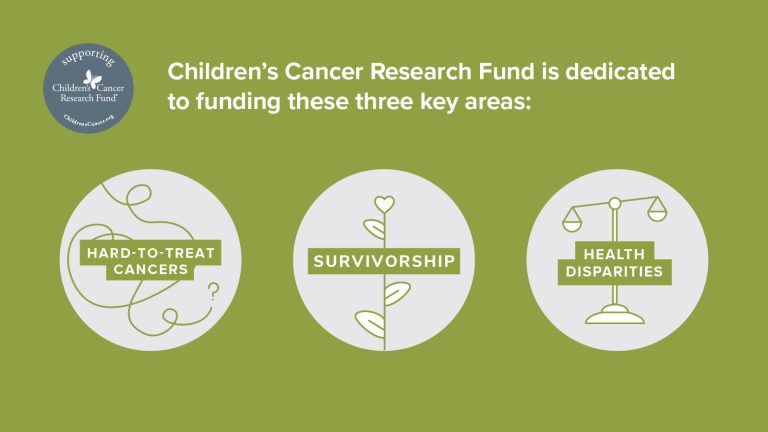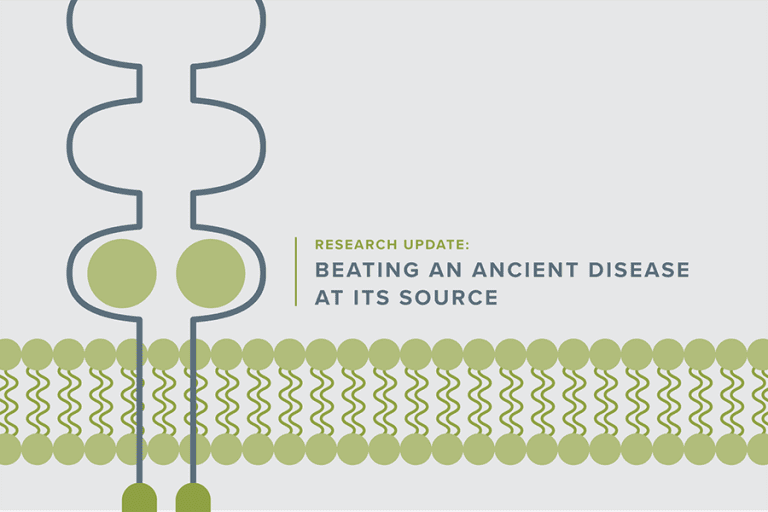Abby and Aaron Breyfogle smile when asked about the personalities of their identical twin girls, Kendal and Kenedi. Kendal, they said, was the strong-willed one, right from the beginning. Her parents describe her as a baby who knew what she wanted, who was in charge. Kendal would crawl over to Kenedi and rip out her nasogastric tube, or take a toy out of her hands - typical big-sister behavior. Kenedi, the endlessly patient sister who loves to chat and sing, never seemed particularly bothered by Kendal’s antics.
“Kendal was definitely the alpha of the two,” Aaron said. “She was bigger, she was stronger, she always did things first.”
“It’s funny,” Abby said. “To think about what that would be like now.”
Kenedi is 9 now, exceeding in gymnastics and dance classes. But Kendal, who passed away from relapsed acute myeloid leukemia in 2017, is forever 2.
What are the odds?
When the girls were nearing three months old, they started to get lesions on their faces - hard bumps that looked like bug bites. The lesions spread to their arms and then their trunk. Abby and Aaron took the girls to a dermatologist, who did a biopsy to figure out what was causing the bumps. That dermatologist sent the family to Mayo Clinic in Rochester, Minnesota, where another doctor recommended a bone marrow biopsy for both girls. That test revealed the cause - Kendal and Kenedi had acute myeloid leukemia, a rare type of childhood leukemia that can be particularly difficult to treat.
“We had to go home and pack up, because we didn’t have what we needed to spend months in the hospital with two babies,” Abby said. “That’s the thing with AML - it’s all inpatient treatment. So we spent the first 62 days in the hospital not leaving that room, that one room.”
The first thing Aaron and Abby wanted to know was what the outcomes could be. How likely was it that their daughters would survive this?
“They never really gave us a straight answer on that,” Aaron said. “They said well based on this subtype, and based on this other factor… basically there were too many nuances for them to point to a definitive outcome we could expect. I remember one doctor would always say, ‘Either it works or it doesn’t.’”
Kendal and Kenedi both handled their four rounds of chemotherapy shockingly well - neither had to be admitted to the pediatric intensive care unit, and neither looked particularly sick or uncomfortable during treatment. Looking back, their parents say this was pretty incredible, considering the toxicity of their chemotherapy drugs. They remember nurses telling them they needed to put on gloves before handling any vomit, blood or even dirty diapers because the drugs in their bodies made them dangerous to touch.
“I remember nurses coming in in full protective gear, gown and all, to handle medication that can’t touch your skin, but inject it right into our infant’s hearts,” Abby said. “That’s a mind-boggling experience.”
Remission and Relapse
After four rounds of chemotherapy, the girls were declared in remission and were discharged on the same day. After several months of occupational and physical therapy for both twins, the family planned a much-needed trip, their first all together - to the beach in Florida. But when they returned, Kendal was clearly sick. Her eyes were swollen, and when Aaron took her to the doctor, her platelets were concerningly low.
They went back to Mayo and stayed the night. The next morning, Abby got an update on Kendal’s patient chart that said “blast present,” meaning Kendal’s cancer was back.
“I just sat there crying because I knew she had relapsed, but it was another two hours before a doctor could come and talk to us,” Abby said.

Visiting Kendal in the hospital
The next step was bone marrow transplant - a risky procedure that involves taking immune cells from a donor and infusing them into Kendal, incorporating into her bone marrow and becoming her new, cancer-fighting immune system. But the transplant never grafted - the treatment had failed, and cancer was still present.
Aaron and Abby put everything they had into finding any other doctors across the country who had another option for Kendal - but they came up short. No other treatments existed for kids like Kendal at that time. Abby and Aaron were reeling - how was it possible that there were no more answers? How was it possible that the available treatments were somehow enough to save one of their daughters, but not the other?
It was time to plan how they’d spend the rest of their time as a family of five. Their family and friends raised money to send them on a family vacation to Disney World that July, so they could enjoy it before Kendal’s health declined even further. Friends threw the family a “Christmas in July” party, knowing Kendal likely wouldn’t survive to celebrate another Christmas. They went to a Minnesota Twins game as a family, and threw a “Kendal party” where a photographer friend of Abby’s took photos to preserve precious memories. In September of 2017, Kendal died at 2 years old.
Honoring Kendal’s Memory
Kenedi and Teagan, the twins’ older sister, bring Kendal up often - they taught their younger brother, Huxley, all about her, since Huxley was born just eight months after Kendal’s passing. Their family has grown and developed through the grief of losing Kendal - Teagan, whose parents describe her as a classic first-born perfectionist, is responsible, fierce, and a lover of dance. Huxley, a carefree, antagonistic prankster, shares a special connection to Kendal even though they never met. Ever since Abby and Aaron began having kids, they loved the name “Declan” for a boy. When they found out Huxley was going to be a boy, a friend pointed out that if they changed the ‘C’ in Declan to a ‘K’, it was an anagram for Kendal.
“So now we have a Huxley Deklan who never met a nap or early bedtime he didn’t love,” Abby said. “Much like his big sister, Kendal, he has a love of sleep.”
Kenedi, a gymnast and dancer, says her friends describe her as shy but extremely funny. She likes to show off her flexibility, and she wants to be a hair stylist when she grows up.

Kenedi holding Kendal's bear
Though Kenedi’s cancer has never returned, her cancer journey isn’t over - she still goes to the doctor more often than most kids her age, and she’s deathly afraid of shots. It’s been years since she’s been in active cancer treatment, but she recently had an electrocardiogram and an heart ultrasound to check her heart function - the chemotherapy treatment she received can often damage children’s organs, including the heart. She gets through the anxiety of each poke or test knowing that her reward is Panda Express on the way home.
Despite keeping busy driving back and forth to dance lessons and sports events, Abby and Aaron have never stopped advocating for better treatments for kids fighting rare leukemia - in the years since Kendal’s passing, they’ve become experts on exactly what kinds of research will make the biggest difference for the kids who are diagnosed next.
“Researchers keep learning more and more about the subtypes, and that’s what it comes down to,” Aaron said. “Knowing the general type of leukemia is somewhat helpful, but to better treat it and predict outcomes, you really need that subtype information. That’s what they’re working towards.”
They both want more people to know that the missing piece, when it comes to delivering better cancer treatments for kids, is money. For childhood cancers, over half of all the funding allocated to research comes from families themselves and from nonprofit organizations like Children’s Cancer Research Fund. Researchers with great ideas are only able to move their work forward because of advocacy from families and generous contributions by those who hear their stories.
“If we put as much effort into this area of health that we do some others, we’d be much further ahead,” Aaron said. “That’s blatantly obvious. I also wish people knew that childhood cancer is way more common than many people believe. Until you’re in this community, you believe it’s rare, but on our end, we see how common it is.”
Advancements in how researchers treat rare leukemia have already happened since Kendal’s passing - but Aaron and Abby aren’t stopping until no child dies from cancer, and until survivors like Kenedi don’t have to worry about lifelong side effects as a result of their treatment.
“We share in the hope that people will raise funds, and that other parents won’t have to go through this nightmare,” Abby said. “That’s the ultimate goal.”
Support Research for Kids Like Kenedi and Kendal
Cancer treatments for kids like Kenedi and Kendal are often harsh and haven't improved in decades - but we believe kids deserve better. Your gift supports researchers searching for better, safer treatments for kids fighting cancer.




